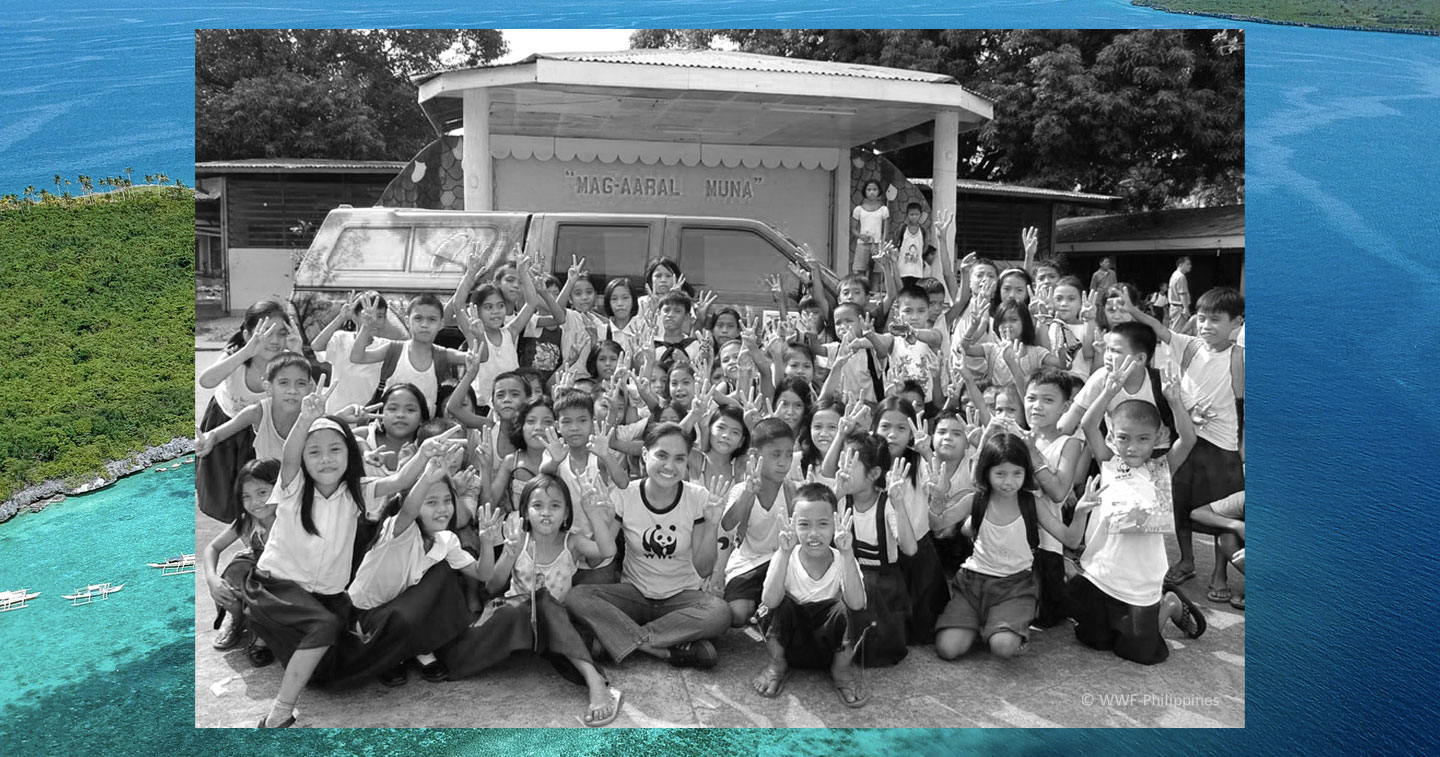MANILA, PHILIPPINES – The World Wide Fund for Nature (WWF) Philippines’ Environmental Education (EE) Program has reached out to over one million individuals this 2020 — a milestone achieved despite the lockdown measures that have been put in place in response to the COVID-19 pandemic.
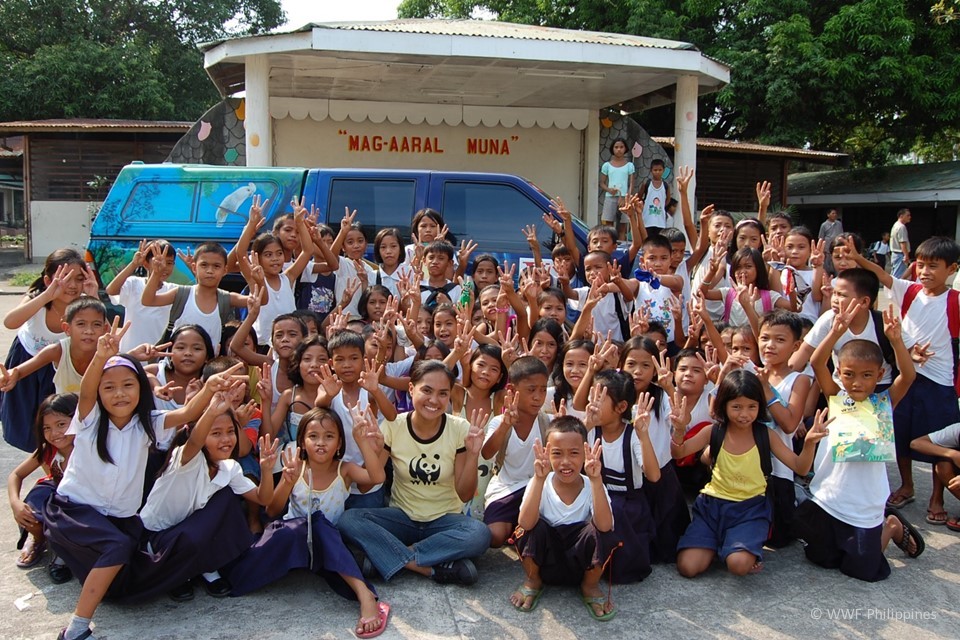
The Environmental Education Program was formally launched in May 1999, when they began touring coastal communities and major cities around the Philippines through a traveling exhibition called the Project L.I.F.E. (Learning Interdependently For the Environment). Complete with multimedia equipment, educational materials on biodiversity conservation, and a mobile educational van that featured Philippine wildlife in its exterior, Project L.I.F.E was able to teach 20,000 children on its initial run.
With the project’s success, the EE Program expanded its scope to include thematic environmental modules on climate change, waste and energy management, and food security and sustainability – not just for students, but for teachers as well as whole communities.
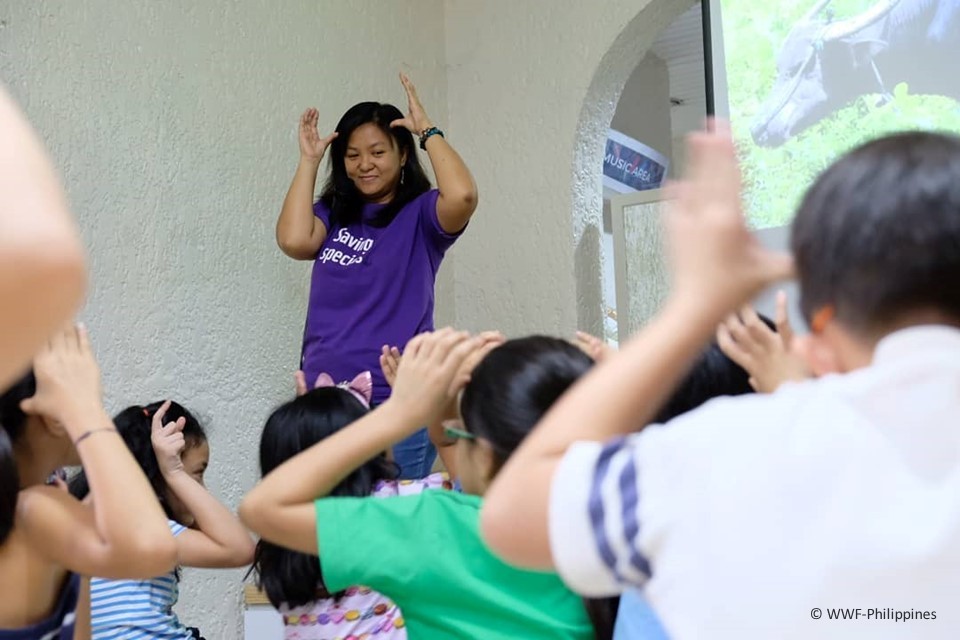
For 21 years, the EE team continued to conduct sessions integrated with lessons of conservation and sustainability while inspiring the youth to innovate and grow as leaders and champions for the environment.
The EE team provides support to WWF-Philippines’ projects and campaigns, and crafts educational programs and activities for the organization’s conservation partners. While the EE team works mainly with schools and educators across the Philippines, they have also formed strong relationships with Local Government Units and the private sector. Partnerships are an integral component of the EE program.
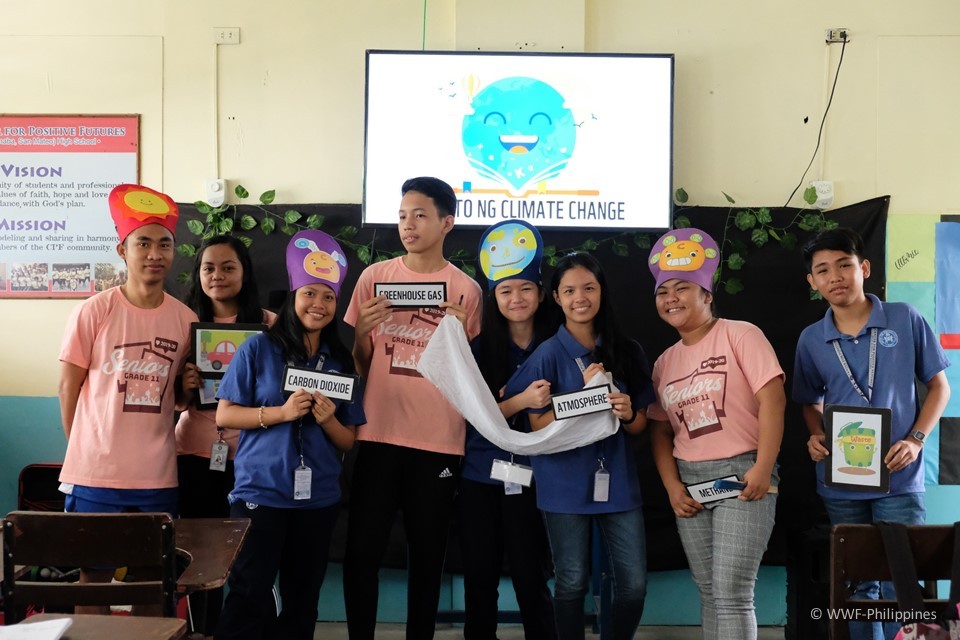
The team has maintained a constant presence in Southern Bicol, specifically in Donsol, Sorsogon, where they educate students about the whale sharks located in the Ticao-Burias Pass Protected Seascape, as well as the importance of preserving natural habitats.
“This is a big deal for us, especially considering the fact that we’re still under a pandemic. We all worked hard for this – our current team, our previous members, and our partners who continued to reach out to us, even during the pandemic,” says WWF-Philippines Environmental Education Program Manager Dino Calderon. The team continues to work amid the pandemic, reaching students through workshops and webinars using different virtual and online platforms.
Challenged by different issues such as marine life threats, plastic pollution, unpredictable weather, and the COVID-19 pandemic, Calderon stresses the significance of environmental education for deepened understanding of these problems. He emphasized the importance of equipping the youth with knowledge, values, and skills to address these emergent environmental threats and promoting consciousness and conservation efforts for the natural resources.
The EE team continues to explore effective and timely approaches to teaching about the environment. “We’re always looking out for new concepts, new things to teach, whatever we can use to train young minds to be compassionate and caring for the environment,” says Calderon. He added that without environmental education, contemporary issues would be difficult to resolve, and the burden of dealing with their impacts would be shouldered by future generations.
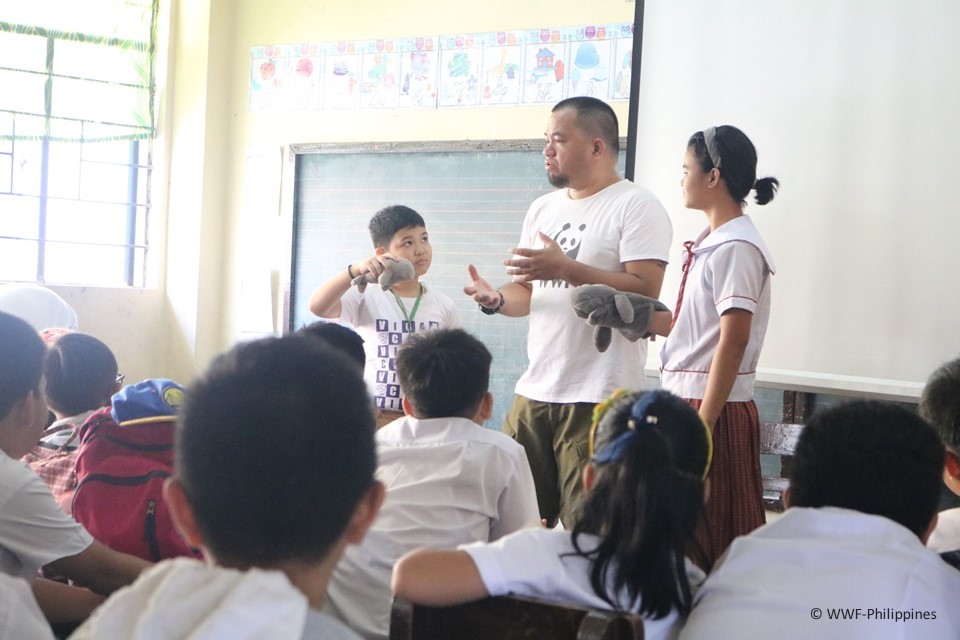
As it enters its 22nd year of operations, the EE team will continue its work and advocacies to reach more young minds.
“Our work doesn’t end here. We’ll continue to work with schools and with the youth, as we always do. We plan on working with professionals and companies as well, raising awareness on sustainable lifestyles and greener workplaces. We want everyone to participate in building a fairer, greener future for all,” added Calderon.
The Environmental Education team is part of the organizing committee of WWF’s Global Education Summit (GES) which is set to be held in 2021. This summit, which is expected to be attended by different educators of the WWF networks worldwide, aims to strengthen the role of environmental education by providing strategies that will contribute to achieving the WWF goal of building a better planet.
As part of its innovative strategies, the EE team has begun practicing the Education for Sustainable Development (ESD) approach. ESD looks at social, economic, and environmental considerations to issues, and promotes the Sustainable Development Goals.

